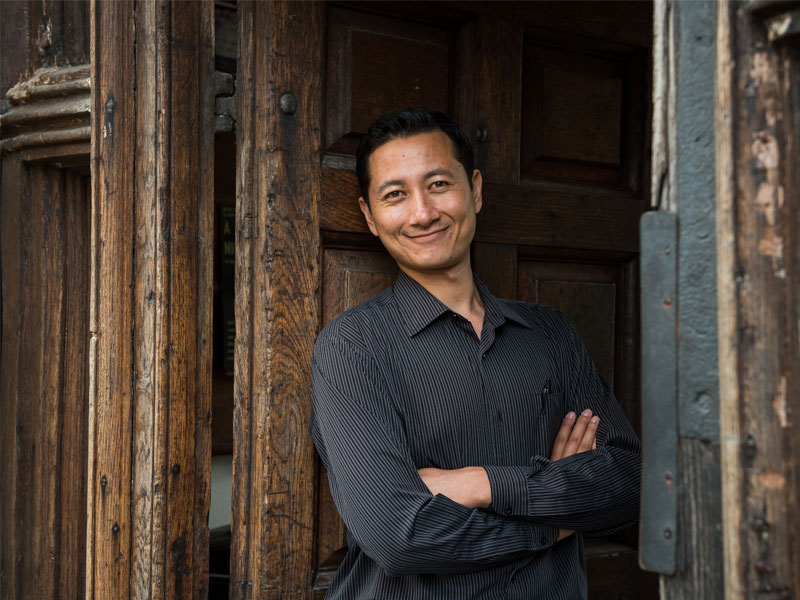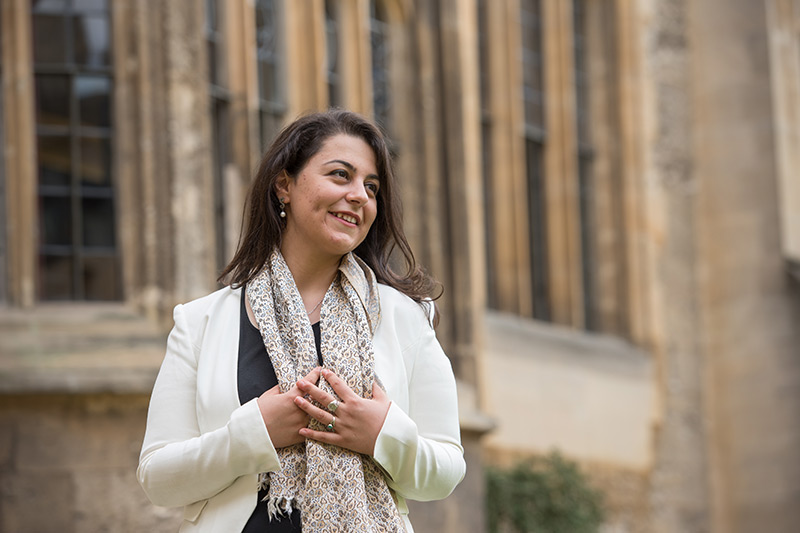First published in October 2016
Oxford is at the forefront of teaching and research to help combat diseases affecting populations worldwide. Through its world-leading Centre for Tropical Medicine and Global Health (CTMGH), the University is working to find practical solutions to the problems these diseases cause. The centre conducts its research overseas in Africa and Asia, and across two sites in Oxford.
Poojan Shrestha, Arcadia Weidenfeld-Hoffmann Scholar
MSc in International Health and Tropical Medicine
‘Antimicrobial resistance is something I’m really passionate about,’ says Poojan Shrestha, dentist turned clinical researcher from Kathmandu, Nepal. ‘Even before coming to Oxford, I was working on it. I helped to set up a huge database in my hospital, to see how resistance was evolving there. So as soon as I saw that this topic was available, I dove straight in.’

Before applying for the master’s, Poojan worked at Oxford University’s Clinical Research Unit in Nepal as a research fellow. ‘I realised how much of a burden infectious diseases were,’ he recalls. ‘It’s a global problem but when you look at the number of deaths associated, it’s much more of a problem for developing countries. And when these infections become resistant, that’s a huge obstacle.’
As part of his studies, Poojan spent two months in Thailand with Oxford’s Mathematical and Economic MODelling Group. ‘I’ve been calculating the external cost of antibiotic resistance, looking not only at what you would pay at the pharmacy, but at other elements such as the external cost of air pollution, for example. It’s a very new approach – but very important,’ he explains.
We want to try and figure out a way that we can all stay in touch and work together on future projects.Poojan Shrestha
Poojan hopes to continue his research once the course has ended, but is also eyeing other opportunities. ‘We want to try and figure out a way that we can all stay in touch and work together on future projects,’ says Poojan, of his course-mates. ‘We may be from 14 different countries, but there’s so much cohesion in our group, and that in itself opens up really exciting possibilities.’
Manar Marzouk, Eve Jones Memorial Scholar
MSc in International Health and Tropical Medicine
As a 15-year-old living in Syria, Manar Marzouk dreamt of a career working with Médecins Sans Frontières: ‘I never thought I would stay in Syria. I wanted to travel around the world, to wherever there was a disaster, and help affected populations.’ In order to fulfil her goal, Manar studied pharmacy at the University of Damascus, but the outbreak of war in 2011 caused her to rethink her plans.

Instead of travelling abroad, she remained in Syria, undertaking a number of humanitarian roles with the UN Refugee Agency (UNHCR), and later with UNICEF. It was only after being persuaded by a friend – an Oxford alumnus – that Manar decided to apply for the master’s course in International Health: ‘I sent the application and thought no-one would read it, but it happened!’
Manar is now undertaking research into the management of cancer care for Syrian refugees in Jordan, with a focus on the challenges facing healthcare workers and policy providers. ‘There is very limited research done in this area,’ she explains. ‘I was seeing this on a daily basis in Syria. I was seeing patients with chronic and non-communicable diseases becoming more and more neglected.’ The course, Manar reflects, has made her ‘believe in the power of research to make change’, and she hopes to continue working with displaced and refugee populations when she graduates.
For Manar, the Oxford experience has been transformative: ‘I think the master’s here was a master’s in life actually; the people I’ve met have become like family to me. It’s changed me as a person, and I know I’ll never regret it.’